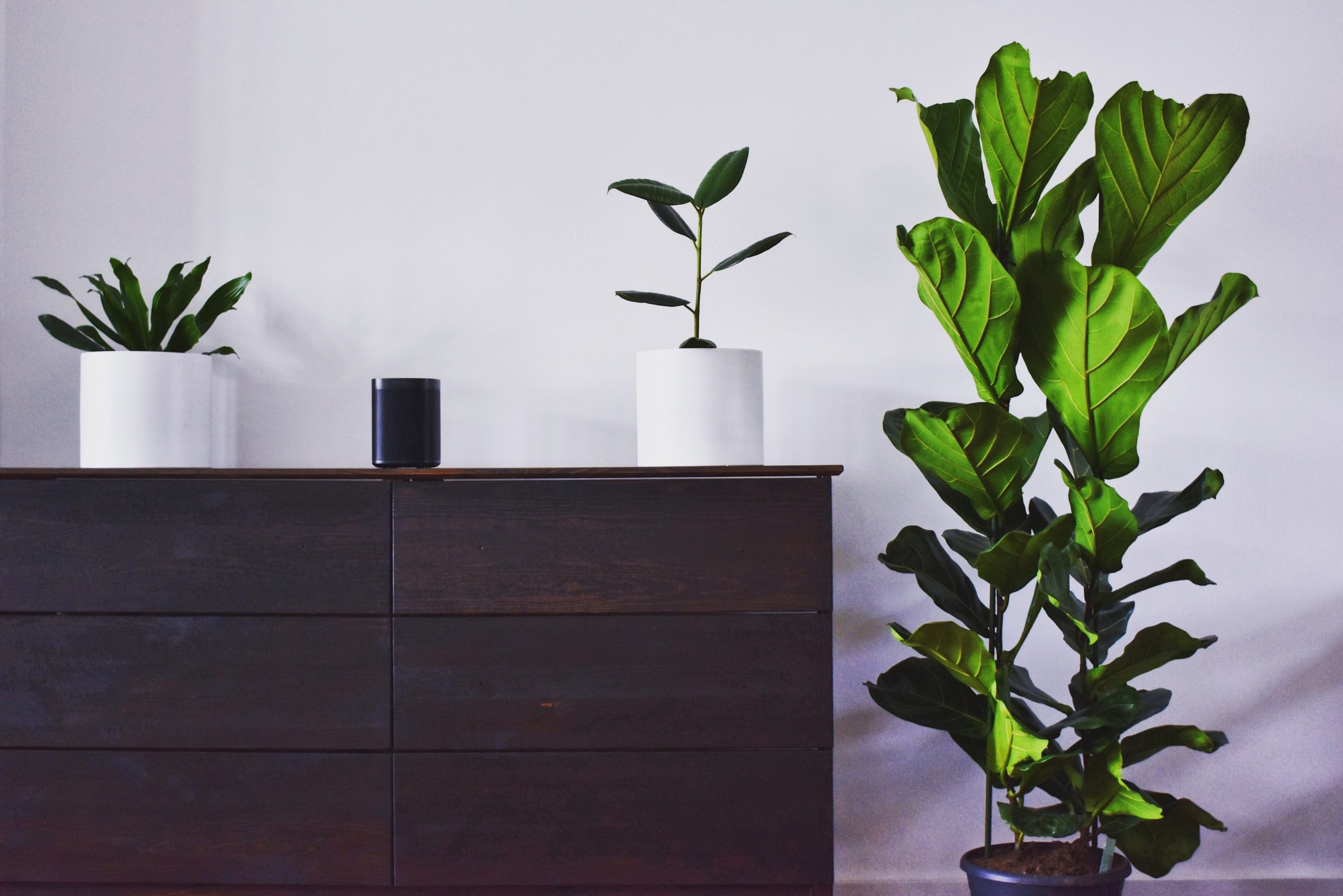If you are still working from home, there has to be days when you don’t go outside or get any fresh air. This can be fixed with the addition of houseplants to your living space! Learn how houseplants can make you breathe and feel better while you are at home!
Why you should get a house plant
If you are looking to update your space, houseplants may be the perfect option. Not only is adding greenery to your home a stylish way to decorate, but houseplants have also been proven to make a positive impact on both your health and the environment. Houseplants are incredibly effective at cleaning indoor air and removing airborne toxins that can be harmful when inhaled. If you are worried that your lack of a green thumb may only spell disaster for any plants to enter your home, never fear — caring for houseplants is actually surprisingly simple.
Although we may not be able to tell, the air we breathe in our homes and offices can be filled with toxins and pollutants. Chemicals (like benzene, formaldehyde, trichloroethylene and xylene) from our wall paint, carpet, glue from our furniture, and even our own carbon dioxide, swirl around us. Common houseplants operate as efficient air filters and purifiers to really make a difference in the air we breathe. In the absence of plants or any air filters, indoor spaces can become affected by “sick building syndrome,” causing respiratory problems, nosebleeds, and even cancer and pregnancy problems. Indoor air quality really matters!
In 1989, NASA conducted a large study of houseplants in search of the most effective ones to purify air in space stations. Their findings benefit us here on Earth, too as they provide us with a list of plants that not only beautify our surroundings, but also naturally remove toxins and produce more oxygen.
What type should I get?
The NASA list includes over 30 different types of houseplants, including golden pothos, which proved extremely effective at removing formaldehyde from the air. Formaldehyde (along with benzene, trichloroethylene and many similar chemicals) can lead to nasty symptoms when inhaled — think headaches, dizziness, and over time toxic effects on your internal organs! Snake plant (also called mother-in-law tongue) is an excellent bedroom choice as it releases oxygen, removes carbon dioxide through the night, and reduces respiratory symptoms, eye irritation and headaches.
Some other superstars of the houseplant world include Chinese evergreens, dracaenas and parlor palms, which are easy to grow and require minimal effort, according to Carla Action of Garden Gate Nursery in Gainesville. Although it may seem daunting to add houseplants to your home, Action said that most only need to be watered once a week. However, make sure that your houseplants do not sit in a saucer of water for more than 20 minutes as it can put your plant at risk for root rot.
Some plants, like ferns or ivy, may be harder to grow inside, but thankfully many other plant varieties exist to satisfy your air purifying needs. Action also warned that many types of houseplants are toxic to pets (like the peace lily and philodendron), so take that into consideration when choosing what to grow.
Regardless of what houseplant you choose, with just a little time and water, you will be enjoying fresher air in no time.
Related articles:
Healthy Happy Hour: A Twist on the Classic Mojito
Incorporate Cardio Into Your At-Home Routine!

